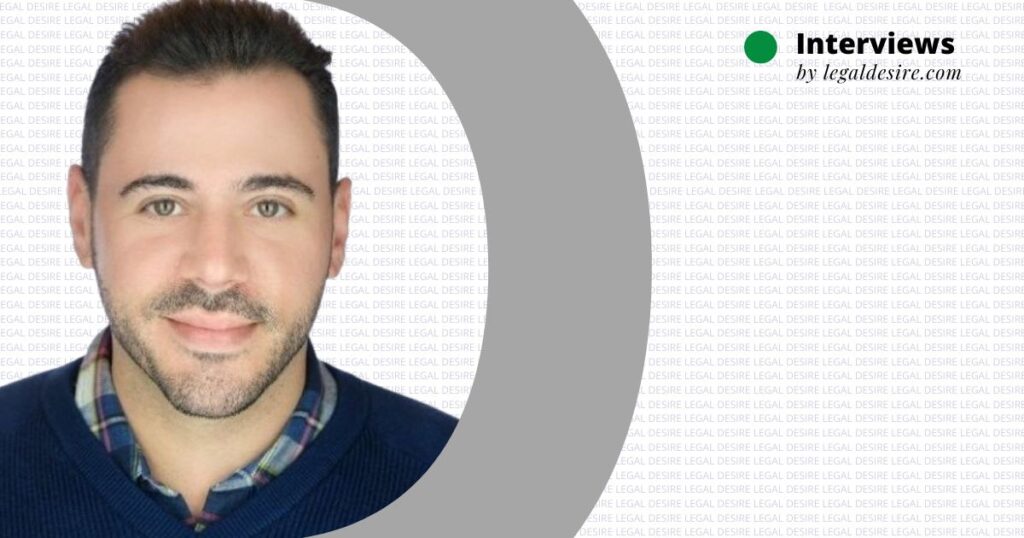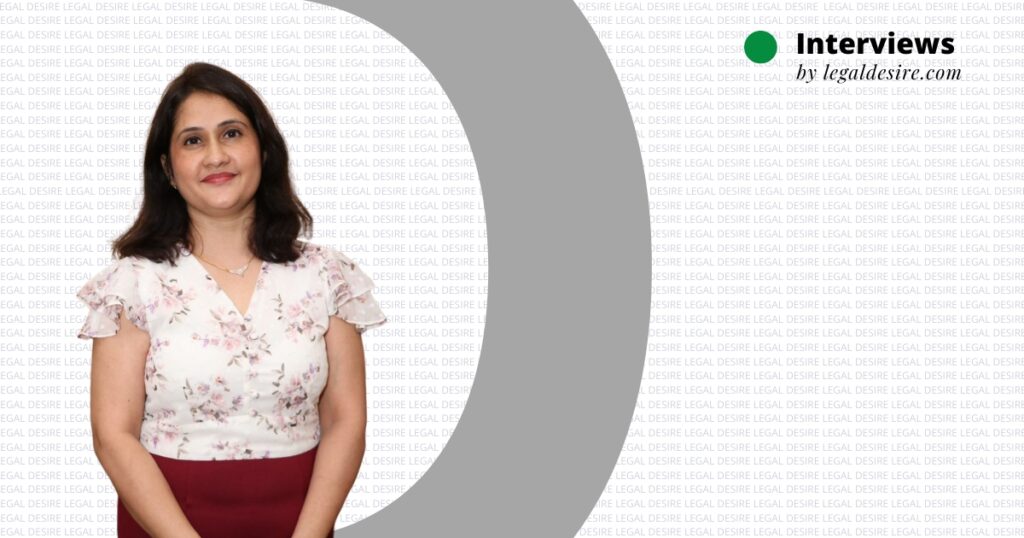Now Reading: In conversation with Sujata Chaudhri, Founder & Managing Partner, SCIP Attorneys
-
01
In conversation with Sujata Chaudhri, Founder & Managing Partner, SCIP Attorneys
In conversation with Sujata Chaudhri, Founder & Managing Partner, SCIP Attorneys
Sujata Chaudhri, Founder & Managing Partner of Sujata Chaudhri IP (SCIP) Attorneys, a boutique Intellectual Property Firm based out of Delhi NCR. Sujata has had an illustrious journey as an IP Professional and has been a preferred lawyer for foreign firms and international clients, given her experience of working in United States for a considerable period of time. Sujata has also been actively involved in contributing to the education sector and was formerly an adjunct professor at the Franklin Pierce Centre for Intellectual Property, University of New Hampshire Law School. She continues to serve on the advisory board of the law school. She has also co-taught a seminar course on international trade marks at the New York University (NYU) School of Law. In India Sujata delivers lectures on practice-based topics at Jindal Global Law School. Here’s the candid conversation with her:
What have been the main drivers behind your growth in the past 5 years? Is there a particular strategy you followed for growth?
One of the major drivers behind the firm’s growth in the past 5 years, in my opinion, has been the ability of our firm’s lawyers to deliver qualitative work product to clients, tailor-made to their business and requirements, within a quick turn-around time. For me, developing, maintaining and harnessing client relationships is of utmost importance. This, in my view, has been one of the crucial reasons why the firm’s existing clients have been appreciative of its work and, in turn, referred the firm to their friends and colleagues. I would consider myself fortunate that the firm has flourished to a good extent through word of mouth and referral, coupled, of course, with the firm’s efforts to build a brand of its own – one that stresses on quality over quantity. As for the strategy behind the growth, my conscious endeavor has always been to build a team of highly motivated professionals and to develop a work environment that makes work enjoyable for all. In the current work structure, every work product passes through appropriate layers of quality check with value addition at each layer. Lastly, the firm encourages ideas from its young legal minds that add value to the firm’s functioning wherever possible – be it legal advice to a client, or the internal management of the firm.
Have there been any intellectual property trends or changes in economic scenario that have worked to your advantage?
Advancement in technology, coupled with the Government’s efforts in fast-tracking IP procedures and reducing its years’ long backlog, I would say, have worked majorly to every firm’s advantage. From days where all filings were done by hand, to today, where online filings are a norm, we’ve come a long way. Furthermore, initiatives such as expedited examination, service of oppositions by email, rebate on online filing vis-a-vis hard copy filing and issuance of Certificates of Registration of trademark online, to name a few, are testimony to the faster and digitized way of working of the Trade Marks Registry. This has surely increased efficiency and productivity by saving time and money, benefits of which are eventually passed on to the clients. Besides this, the formation of commercial courts across the country and the constant enrichment of IP jurisprudence by the Delhi High Court, in particular, have further solidified the IP industry.

Sujata Chaudhri, Founder & Managing Partner, (SCIP) Attorneys
Talking of your early days, what got you interested in the field of IP?
While pursuing my Masters in law from Franklin Pierce Law Centre (now University of New Hampshire Law School), I developed interest in branding and trade mark issues in the United States and India. This was also the time when IP laws were evolving globally. I knew that it would be challenging to be a part of a field that was in the state of metamorphosis as there would be newer enactments and precedents set every now and then. I was also a keen observer of the points of similarities and dissimilarities between the IP regimes of the two countries. It was also interesting for me to observe how Western trends were eventually influencing the Indian IP environment. I also believed that IP is one area of law where all sizes and types of businesses/services required handholding. Right from startups to well-established and multi-national corporations, protection of human intellect, in my view, holds utmost importance and deserves to be protected and cherished.
What was your first job after law school? Was working in the U.S. a part of pre-planned career goal or did it happen by chance?
My first job after law school was at a firm that practiced corporate law. That was about the time the Indian economy was opening up and the spectrum of work and issues encountered in deals between Indian and foreign companies was diverse, complex and interesting. I got to assist in various transactional issues that I enjoyed wading through. I relished the hard work and actually enjoyed the inordinately long hours and pressure. And then I got exposed to intellectual property law as part of a deal, and was inquisitive. That lead me to inquire more, and, finally, the LLM in the United States of America. As for working in the US, there was no strict plan. I was very fortunate to have been able to have that experience though and even more fortunate to be associated with a great firm that let me grow both as a person and professional, and appreciated me for my skills!
From working in a firm to owning one, your professional journey has come a full-circle. What motivated you to set-up Sujata Chaudhri IP Attorneys (SCIP)?
The most important factor that motivated me to set up SCIP was the quest to establish an institutionalized set-up with the culture and values I imbibed from the firm I worked at in the US. Most of the clients with whom I had worked in the U.S., kept sending me work pertaining to India, once I returned from the US. Gradually, the volume of work kept increasing with each work product I delivered successfully. With growing volumes, I needed to combat the challenges of bandwidth, technology and maintaining the quality work. The logical next step was to create a stable platform to service the clients well. Setting up SCIP helped me in achieving some sort of perpetuity in my passion to practice IP law. While the initial days raised a flurry of question marks owing to my lack of familiarity with administrative aspects of establishing a firm, my fervor for taking up challenges kept me motivated all along. I took up all these challenges head on with a vision to convert them into opportunities for growth. The habit of perseverance that I developed through years of practice helped me a great deal in multi-tasking. There were days at a stretch when I used to address the administrative and operational challenges through the day and execute the work through the night. My professional journey has indeed come a full circle and is truly gratifying. I am immensely grateful to my mentors at my former firm in the US, and all of my colleagues at Sujata Chaudhri IP Attorneys for their faith in me.
In times where several law graduates are entering the profession each year, Law Firms are still struggling with talent-retention. What are your views on retaining talent and how do you achieve this at your firm?
In my view, before retaining talent, it is important to get raw talent, and then hone it in a way that works well both for the firm as well as for the individual. I’ve always believed that talent should be in-grown. Talent retention, in my view, can only materialize if the firm’s and the individual’s goals align. To this effect, we have a well-laid down bi-annual evaluation process at SCIP, where each lawyer and paralegal is formally evaluated on his/her performance and growth in a transparent manner. The exercise helps in identifying the strengths and shortcomings in an individual’s performance, thereby paving the way for an individual’s growth as a professional. I’m also a firm believer of merit-based growth and a fair for all rewarding system. Not only do we have incentives for efficient performers, but also a policy of fast-track progression in career for those who exceed the expectations of the firm. This way, super-performers get the rewards and recognition they deserve in the firm. We’ve had fast track promotions in the firm, where lawyers are given responsibility right from early stages of their career, honing not just their technical skills, but also the soft skills such as delegation of work, mentorship, representing the firm at International conferences, practice development, building a brand, etc., which are vital from an entrepreneurial perspective. This has helped us hone and retain talent.
The Firm follows a very unique management model where you have Office Managers, External Consultants and team of lawyers as a part of decision-making process. How did you come up with such an inclusionary model and does it make the process easier?
I feel that management practices come out better when they are developed with inputs from all concerned, rather than being imposed unilaterally. The vibe of the firm is youthful and the team is very close-knit. Therefore, having the team participate in decision-making process makes it more democratic in nature and encourages greater acceptability. Moreover, it often brings to light diverse points of view, some of which may not have occurred to the management unilaterally. Another advantage of this model is the expert inputs we get from specialized professionals. Expert opinion of Office Managers, Administrators and External Consultants (who are well-versed in their domains like HR Management, Branding, etc.), coupled with inputs from the firm’s lawyers, helps us in looking at each issue with a wholistic impact, leading us to informed and harmonious decision-making. I wouldn’t say that an inclusionary management model makes the decision-making process easier. However, it certainly makes the day-to-day functioning of the firm smoother.
What do the next 5 years hold for the firm?
We are at a very interesting phase of growth, where our pivotal aim is to better our client servicing benchmarks by maximizing our learning curve in a way that blends with the brand we intend on bolstering. We aim on doing so with the aid of technology that the firm has invested in this past year. We also aim at going paperless gradually. While this will surely be an uphill task, we are highly sensitive to our duty towards the environment, as also to deliver solutions to clients at a competitive fee. In terms of growth, we have taken a larger adjacent office space, as a result of which the current premises has been expanded to accommodate a larger team. It’s exciting for me to look back at these 5 years – right from starting as a 3 lawyers’ firm to a 15 lawyers’ firm, as I speak. Moreover, over the last one year, our litigation practice has grown steadily and will hopefully continue to flourish in the years to come. We have an informed and aspirational team, that continuously delves into realms of legal updates and keeps each other abreast of the latest developments. We’re regular in our knowledge sharing initiatives, both internally and externally. While sustaining efforts in this direction, we would also be taking up more pro-bono and philanthropy work in the coming years, as a means to give back to our society.
Give your feedbacks to info@legaldesire.com









